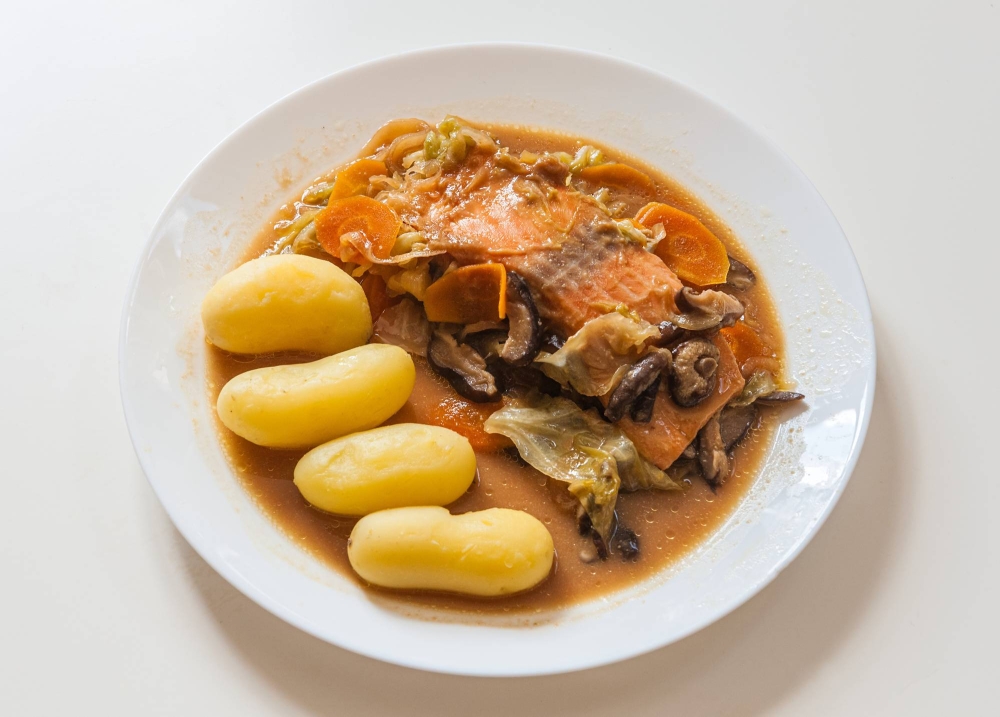Until the 1980s, salmon in Japan was not considered safe to eat. Since the fish spends half its lifetime in fresh water in the wild, it can be susceptible to parasitic worms. It was only through the marketing efforts of a Norwegian salmon fishing organization that Japanese people started to eat farmed salmon grown in controlled conditions free from those pesky worms.
Another thing that has changed since raw farmed salmon became prevalent in Japan is that people have become less aware of the season for wild salmon, which starts in September and continues throughout the winter months. This can still be observed in regional dishes, however, such as Hokkaido’s playfully named chan-chan yaki — or griddle-cooked salmon.
There are various theories behind the name; one is that it comes from the clicking sounds (chan chan in Japanese) from the pan when it’s cooked, while another theory holds that the dish was made by “chan,” a slang word for father. This dish also reflects a combination of Ainu food traditions from Hokkaido. For hundreds of years, salmon was caught in the fall and winter by Ainu fishermen, and the mainland Japanese farmers who immigrated to the island in the 19th century grew cabbage and mushrooms that now feature in modern chan chan yaki recipes. The butter in the recipe also reflects the fact that many of those immigrant farmers were dairy farmers, and the steamed potatoes are yet another staple of the northern island grown widely before cold-resistant rice strains were developed.

